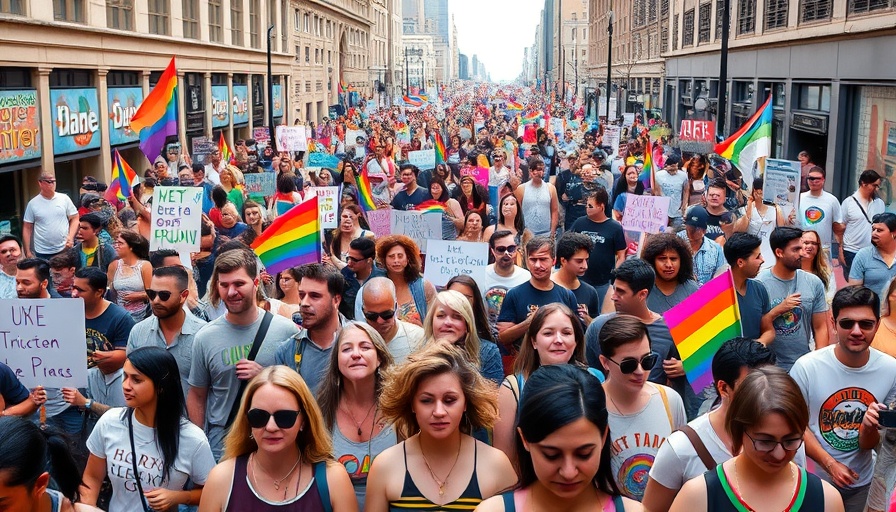
Rethinking Travel: The Impact on LGBTQ+ Tourism in the U.S.
Recent trends show a significant decline in international LGBTQ+ travelers coming to the United States. Statistics reveal that bookings for queer-friendly accommodations saw drastic drops—66% among Canadian users and 32% among Europeans—within just a few months. This retreat is deeply rooted in broader socio-political issues, prompting travelers to reconsider where they spend their money.
Support for Inclusive Destinations
Many international travelers view their travel budgets as a form of activism. The resurgence of anti-LGBTQ+ rhetoric and policies in the U.S. has led them to prioritize travel to more inclusive countries. Canadian traveler Robert Sharp highlighted this sentiment, stating that rather than visit a popular LGBTQ+ destination in the U.S., he and his friends opted for a road trip within Canada to support their local economy.
An Economic Shift in Travel Habits
The broader context of this trend is underscored by a 10% drop in foreign air visitors to the U.S. in March compared to the previous year, as reported by the International Trade Administration. Many are choosing to explore domestic options over U.S. destinations traditionally known for their LGBTQ+ friendliness.
Implications for U.S. Businesses
This decline may have significant implications for U.S. businesses reliant on LGBTQ+ tourism, particularly in cities known for their vibrant LGBTQ+ cultures. Underpinning the economic effects of this shift is a larger narrative about the importance of inclusivity in fostering tourism. Companies looking to attract this demographic must reevaluate their messaging and support for LGBTQ+ rights.
Conclusion: A Call for Change
The reactions from LGBTQ+ travelers signal a clear message: inclusive practices are paramount. Businesses and destinations in the U.S. must adapt in order to attract this vital segment of travelers. Engaging with LGBTQ+ advocacy initiatives and creating welcoming environments will be crucial for revitalizing interest in U.S. tourism among international LGBTQ+ travelers.
 Add Row
Add Row  Add
Add 




Write A Comment